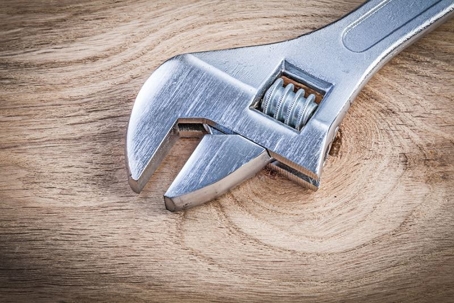Most of us tend to take our heating, ventilation, and air conditioning (HVAC) systems for granted. As long as they are working, it’s easy to go on day after day without thinking about them. But, like most other things, taking care of your HVAC system through regular maintenance is critical to keeping it in good working order.
Many Springfield homeowners today have installed a heat pump to handle their heating and cooling needs. If you have a heat pump, you’ll want to be aware of some special considerations when it comes to regular maintenance issues. Our team at A Plus HVAC offers the following information and tips to help.
Heat Pump Basics
Let’s start with understanding a little bit about how a heat pump operates. Heat pumps are typically more popular in areas with milder temperatures. They operate by essentially moving heat from outside to inside in the winter and inside to outside in the summer.
Since heat pumps do not have to generate heat by consuming electricity, natural gas, propane, or another fuel, they are more energy efficient. According to the US Department of Energy (DOE), heat pumps may reduce your electricity usage by nearly 50 percent when compared with furnaces or baseboard heating units.
Heat pump technology continues to develop, and high-efficiency units can now operate reasonably well in climates with more extreme temperatures.
Air Filter Changes
One of the easiest maintenance tasks you can perform is to change your air filter regularly. Just like in all HVAC systems, the air filter in a heat pump is responsible for cleaning the heated or cooled air before it’s delivered to the rooms of your Massachusetts home.
Basic air filters will remove larger particles of dust or dirt that float through the air. Choosing a high-efficiency filter like a high-efficiency particulate air (HEPA) filter will remove most of the smallest particles including pet dander, pollen, and dust mites.
Clean air filters not only result in better air quality but also help your heat pump operate more efficiently. That means lower energy bills and a longer equipment life span.
Proper Installation
Hopefully, your heat pump was installed properly originally, but it’s not a bad idea to double-check some important requirements. First, your heat pump should be at least four to six inches off the ground. This helps ensure the unit is not obstructed by the ground itself and allows for proper drainage.
Second, your heat pump should not sit under a leaking gutter. If your gutter began to leak after your heat pump was installed, you may want to prioritize that repair for the sake of both your gutter and the heat pump.
Provide Plenty of Room
If your heat pump gets covered in snow, ice, overgrown plants, or yard debris, it will malfunction. It’s a good idea to spend some time inspecting the area around your unit during every season.
During the winter, snow or ice that accumulates on the heat pump must be removed. If a normal thaw or a simple brushing is not enough, you’ll want to turn off your unit and allow it to completely power down.
At that point, you can pour warm (not hot) water over the unit to melt the snow and ice. Be sure not to try to chip off the snow or ice using any type of tool, because you can easily damage the heat pump. Once the unit is clear of snow and ice, turn it back on.
In the other seasons, be sure to keep weeds, grass, and other nearby growth trimmed and out of the way. You’ll also want to clean things like fallen leaves, stray branches, or other yard debris that may gather on top of or under your heat pump.
Be Gentle During Cleaning
If you want to wash off your heat pump in the warmer weather, be sure to use your garden hose, not a power washer. The fins on the heat pump coil are delicate, and a jet of water can easily damage them. At the same time, it’s important to keep the outside of your unit clean and free of dirt, cut grass, or other debris.
Rely on the Professionals Annually
Since heat pumps operate on a 240-volt circuit, they are extremely dangerous for amateurs to work on. It’s a good idea to have your unit inspected, professionally cleaned, and tuned up annually by one of our trained and certified HVAC professionals.
Our experienced technicians will inspect your entire heat pump system including ductwork, airflow, refrigerant charge, electric terminals, thermostat, and more. A regular maintenance call will go a long way in helping to keep your unit operating well all year long.
Contact Us for Your Heat Pump Needs
Our team at A Plus HVAC in Springfield, MA, is ready and waiting to help you with heat pump maintenance. Call us at (413) 344-2691 or request service online today.
The post Heat Pump Maintenance Tips appeared first on A Plus HVAC.

